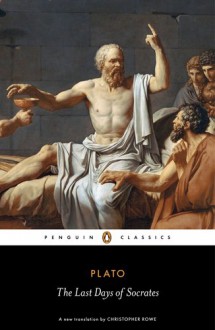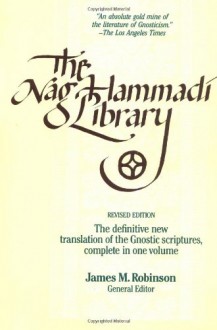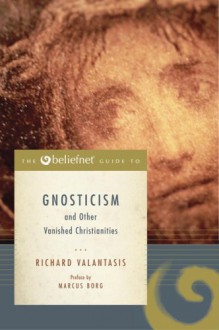
While I have written commentaries on collections before I have since tried to steer away from doing that to instead write about the individual pieces contained therein. Okay, in one way it does help to bump up the number of books on my shelf, but then again that is somewhat irrelevant (It's not as if I win a prize if I have the most books on my shelf, or the most reviews). Generally I find it better to comment on the individual pieces because each of those pieces will have their own points and purposes (such as say a collection of Sophoclean plays) and to write on the books (such as Three Theban Plays) ends up detracting from the individual pieces therein. Sometimes I will write a review on a collection (such as with Henry VI and this particular book) namely because the individual pieces share a common theme, or because it is helpful to look at the works as a whole.
The common theme with these particular works of Plato is that they all deal with the trial and death of Socrates. It is believed by some (me included) that three of the pieces are Socratic while the fourth piece (the Phaedo) is clearly Platonic. I will not go into detail with that here as I have done so elsewhere. Anyway, one piece is a discussion Socrates has at the door to the courthouse, one of them involves the trial, and the last two deal with conversations that Socrates had prior to his death. Furthermore of these four, two of them simply have the trial and death as a background to other philosophic discourses.
What I want to look at here is the trail and death itself as a broader picture. Many have said (and I am once again included) that there are similarities between the death of Jesus and the death of Socrates. That in one sense is true but in another sense it isn't. Some of us (not me) believe that Jesus was simply a wise teacher, much like Socrates, however many others believe that he is either God or a representation of God. Taking the second idea, the difference is striking because where as Socrates is simply a martyr, Jesus is much more than a martyr. In fact there is an awful lot of literature outlining the significance of Jesus' death. If Jesus was simply a man who was executed because he said things that upset the ruling class, and gained a following as such, then there is little point in us worshipping him as God (particularly since there isn't a religion based around Socrates as a wise teacher, which no doubt he was).
However, that does not necessarily mean that we should ignore the fact that Jesus, like Socrates, was martyred because of his revolutionary speech. In fact, Jesus was much more of a revolutionary than was Socrates. Socrates simply challenged the traditional thinking of his day and attacked the individualistic and licentious attitudes of the Greeks. Socrates basically stated that there was an absolute morality, and that people should be seeking to discover this absolute. It is clear in two of these texts that he is outlining some form of absolute morality, and further more, accepting the judgement of what was little more than a kangaroo court on the grounds that he had not desire to undermine his teachings.
Jesus is many cases is similar, however he does not use the trial as another venue for his teaching, which is not surprising since, unlike Socrates, Jesus was tried in secret surrounded pretty much by a group of people who had already made up their minds about him. This was not the case with Socrates, since the three hundred members of the jury were present, and a number of them could still be challenged by his views. Granted he was found guilty, and executed, however it is necessary to remember that Socrates did have a fair trial, Jesus did not.
However, Jesus was much more revolutionary than Socrates since Socrates only sought to reform a system that needed reform, whereas Jesus came to pretty much demolish the previous system so as to lay the groundwork of a new system. Okay, he did say that he had not come to abolish the law but to fulfill it, but he also indicated that the period of worshipping God in the temple had come to an end, and the priesthood had become obsolete. What Jesus had effectively done was to take access to God out of the hands of the priesthood and to put it into the hands of the people. This is a similar thing that we see with Joan of Arc and with Martin Luther. The people had been oppressed by the Church and the truth of God had been obfuscated by a priesthood who were using religion as a means of oppressing the masses. This was something that Jesus never intended.
So, the question that should be raised is why did it not remain as such after the establishment of the early church, why did we have to go through another, and quite bloody, reformation to be freed from the power of the church, and did the reformation work. The simple answer is that the ruling elite do not like people to think for themselves, and seek to place themselves above and to lord themselves over the masses. Notice that Paul seems to rile against idol worship. The reason for this is that like the Jewish Temple, the pagan temples were also an extension of the government and the ruling elite to oppress the masses. The idols were instruments of oppression and fear, as well as a means of enriching the ruling class through the exploitation of the irrational fears of the populace. However Jesus came along not only the break the rule of the Jewish priestly class, but to also destroy the power that the pagan gods held over the Gentile masses.
That was not to last, and while it did last for about three hundred years, we also see the church being attacked from all quarters. The emperors attacked the church because they could not use the fear of the gods to rule the lives of the Christians. The Christians no longer feared the pagan gods, nor did they fear the emperors, and no matter how hard they tried, they could not scare them. Further, people from within attempted to seduce and confuse many of the followers through teachings that would once again place them under the power of others, such as Gnosticism and Neo-platoism. The Christians had access to the truth through the Gospel, but by adding to the Gospel, they could once again enslave them.
I could write much more upon this subject, but I think I will bring it to an end at this stage, however I will mention that the Catholic Church arose from the period when the government decided that since it could not destroy the church, they would instead take over the church. There were constant battles between the clergy and the emperors, and in the end the emperors lost. However, what happened was that Constantine legitimised the church, and in doing so empowered the leadership of the church. As the saying goes, first they ignore you, then they ridicule you, then they attack you, and then they try to corrupt you (and if you pass through that you have won). However, power corrupts and absolute power corrupts absolutely, so when the church was legitimised by Constantine, the clergy was empowered, and in being empowered, it became corrupt. As for today, while the church has lost a lot of its power from those days, it is still a strong influence over people's lives, and in many cases not a democratic institution. When others begin to believe that they know what is good for us, and begin to bully us and coerce us into a certain direction, then the seduction of power becomes absolute.

 Log in with Facebook
Log in with Facebook 







